I am trying to replace a line in file and am running in to issues.
Original File:
export PS1='\h:\w\$ '
Command I am running:
perl -pi -e 's~PS1.*~PS1="\n\[\e[32;1m\][\[\e[37;1m\]\u@\h:\[\e[37;1m\]\w\[\e[32;1m\]]\\$ \[\e[0m\]~g' ~/.bashrc
Error message:
syntax error at -e line 1, near "e["
Execution of -e aborted due to compilation errors.
I also tried sed:
sed -i 's~PS1.*~PS1="\n\[\e[32;1m\][\[\e[37;1m\]\u@\h:\[\e[37;1m\]\w\[\e[32;1m\]]\\$ \[\e[0m\]~g' ~/.bashrc
Result with Sed:
export PS1="
[e[32;1m][[e[37;1m]@h:[e[37;1m]w[e[32;1m]]\$ [e[0m]
Expected Result File:
export PS1="\n\[\e[32;1m\][\[\e[37;1m\]\u@\h:\[\e[37;1m\]\w\[\e[32;1m\]]\\$ \[\e[0m\]"
End Result
This doesn't have much to do with the question except to show folks what the PS1 will look like when working properly
